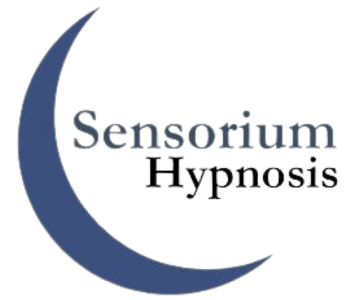Stonewalling. The silent treatment. Slamming doors. Hanging up. Walking away to avoid difficult conversations. Pretending everything is fine when it’s not. When you are sick, she is sicker. When you are struggling, she struggles too. When you hurt, you are a complainer and first-class malingerer. Because when you are small, she is most powerful – all knowing and omnipresent.
When she is not busy hijacking your story, your feelings, your choices, she is the victim and there is always a villain. You may in fact be that villain. You toggle between an indentured servant and insensitive jerk. She is dismissive, belittling, mean-spirited, passive aggressive, entitled, and never takes personal responsibility for her wrongdoings. Anything you say or do in the spirit of honesty can and will be used against you to reinforce feelings of disempowerment and vulnerability.
Your problems will annoy her. “Can I say something now?” Or “Not to change the subject, but….” She will dissuade you from being optimistic or excited or ambitious and because of this, you will second guess yourself. Your independence and self-sufficiency will be seen as a threat and your efforts, thwarted or undermined. When you least expect it, she will come bearing gifts, then at some point belittle you for taking advantage of her kindness and generosity. She will gossip and manipulate conversations to make you look entitled and ungrateful while she appears virtuous and benevolent.
You will swear you are losing your mind because no one else will be on the receiving end of such madness, nor will they ever witness what happens behind closed doors. In fact, her public persona will be completely incongruent from the version of herself she presents to you. Am I the crazy one? What am I doing wrong? Why can’t I handle her?
And then one day it finally clicks. You’re not losing it. Imagining it. Exaggerating it. Confabulating it. This IS real and you are being targeted But why? Because you are the one who threatens her the most – her sense of importance, control, self-esteem and every other part of her that has ever felt empty or wounded. And everything you are – kind, compassionate, generous, intelligent, independent, successful and abundant – is everything she longs to be but lacks the emotional depth or inner strength to achieve. You are the helper/healer, the fixer, the peacekeeper, the compromiser, the rainmaker and you operate from a place of purity. But instead of having a mom who acknowledges, nurtures and encourages these gifts in you, you have a mom who acts more like a spoiled and jealous older sister.
Growing up with a narcissistic parent can be an emotionally challenging and traumatic experience. One of the most difficult realities to face is that your own parent cannot be trusted with your heart and is neither a cheerleader nor an advocate of your best interest. The other challenge is recognizing how similar relationships patterns follow us into adulthood in the form of friendships, romantic partnerships or even work situations. It takes many seasons of self-awareness, confidence and persistence to climb out of similar patterns and reclaim your emotional well-being. Below I will share a few insights to help readjust your path.
Understanding the Characteristics of a Narcissist
First, it’s important to understand the complex characteristics of narcissistic personality disorder (NPD) which may include but is not limited to: an inflated sense of self-importance, a belief in their own uniqueness and superiority, a need for excessive admiration, sense of entitlement, interpersonal exploitation, passive-aggressive behavior, hypervigilant and overdramatic, lacks empathy, envies others, displays radical changes in behavior when toggling between their private and public lives, avoids honesty and transparency, cultivates superficial relationships and focuses on appearances, dismissive of other’s feelings, lacks self-awareness or sense of personal responsibility for irrational, ungrounded or unkind behaviors, and triangulates, often playing the victim.
Strategies for Narcissistic Abuse Recovery
**Educate Yourself**: Learn about NPD. Your parent’s behavior is not your fault, and your highest responsibility is to yourself and your own recovery. This knowledge can help you detach emotionally and see the situation more objectively through a clearer lens.
** Establish Clear Boundaries**: This will protect your emotional well-being, as well as the emotional well-being of others in your family system. This may include limiting contact, avoiding certain topics, or refusing to engage in manipulative behaviors. Keep in mind, the nature of your relationship with a narcissistic parent may need to be adjusted periodically if you are feeling particularly vulnerable or emotionally drained.
**Practice Self-Care**: Make your own physical and mental health a priority. Cultivate and nurture relationships with other high frequency souls who bring you joy and engage in activities that facilitate relaxation, such as exercise, meditation, or hobbies.
**Seek Support**: Connect with others who understand your situation. This could be through support groups, trusted friends, or family members who are not enmeshed with the narcissistic parent. Word of warning here: devoting too much time to rehashing negative events may be counterproductive to your emotional wellbeing. Finding positive distractions and creative outlets help open new neural pathways and move us behind old patterns.
**Develop Self-Validation**: Learn to trust your own perceptions and feelings. Narcissistic parents often use gaslighting techniques to reinforce their children’s feelings of self-doubt. When we are young and do not understand these complex relationship dynamics, we lack the tools to cope or protect ourselves. As adults, however, it is our responsibility to recreate relationships with parents and/or other people in our life that reflect our values and priorities and foster emotional health.
**Work on Self-Esteem**: Focus on building your self-esteem independent of your parent’s approval which may entail not sharing personal details of your life with them. Your worth, accomplishments, talents and gifts are innate and separate from your family of origin.
**Consider a Healing Modality**: Working with an experienced practitioner in dealing with narcissistic abuse can provide valuable insights and coping strategies. Connecting with your own inner wisdom and piecing together formula for managing this relationship builds confidence and reinforces trust in your own perceptions and impressions.
**Practice Emotional Detachment**: Learn to emotionally detach from your parent’s behavior so you don’t let their actions control your emotional state. It’s not about abandoning your parent, but rather extinguishing the unhealthy components of your relationship while freeing your inner child from unnecessary harm.
**Practice the “Grey Rock” method**: When interacting with your narcissistic parent, keep conversations superficial and unemotional. This reduces conflict and manipulation. ** The concept of “grey rocking” comes from Pavlovian psychology. It’s based on the understanding that behavior can be reinforced or extinguished based on outside cues.
It is common for an adult child of a narcissistic parent to focus heavily on infrequent displays of generosity which in turn promotes feelings of guilt for establishing healthy boundaries or focusing on self-care. These feelings are further compounded by patterns of role reversal in which the child assumes responsibility for emotionally or physically protecting and caring for a parent throughout their lifespan (i.e. “parentification”). However, when recovering from narcissistic abuse, it is also important to identify patterns of inconsistency and manipulation in your relationship as a reminder that “inner child” deserves more stability. The process, strategies, and timeline for reclaiming your emotional freedom is highly individual and best supported through spiritual/emotional healing modalities.
______________________________________________________________________________
Amy is a hypnotist, spiritual coach and medium with decades of experience working as a rehabilitation counselor in the areas of mental health, physical disability, chronic pain/chronic illness and addictions. For more information on Sensorium Hypnosis & Amy’s multi-modality self-healing approach, please visit www.sensoriumhypnosis.com and book a free consultation.

